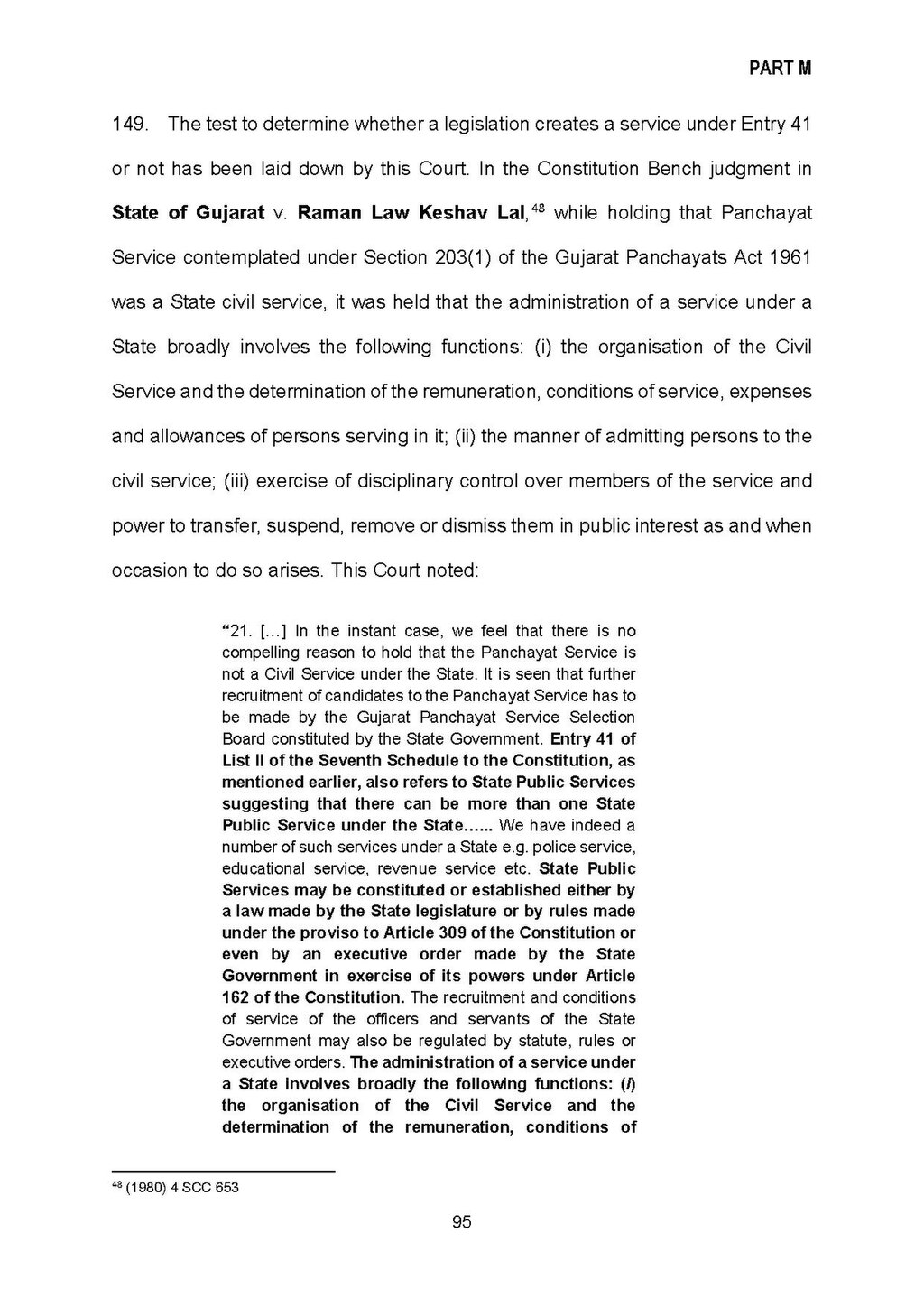149. The test to determine whether a legislation creates a service under Entry 41 or not has been laid down by this Court. In the Constitution Bench judgment in State of Gujarat v. Raman Law Keshav Lal[1], while holding that Panchayat Service contemplated under Section 203(1) of the Gujarat Panchayats Act 1961 was a State civil service, it was held that the administration of a service under a State broadly involves the following functions: (i) the organisation of the Civil Service and the determination of the remuneration, conditions of service, expenses and allowances of persons serving in it; (ii) the manner of admitting persons to the civil service; (iii) exercise of disciplinary control over members of the service and power to transfer, suspend, remove or dismiss them in public interest as and when occasion to do so arises. This Court noted:
“21. […] In the instant case, we feel that there is no compelling reason to hold that the Panchayat Service is not a Civil Service under the State. It is seen that further recruitment of candidates to the Panchayat Service has to be made by the Gujarat Panchayat Service Selection Board constituted by the State Government. Entry 41 of List II of the Seventh Schedule to the Constitution, as mentioned earlier, also refers to State Public Services suggesting that there can be more than one State Public Service under the State…... We have indeed a number of such services under a State e.g. police service, educational service, revenue service etc. State Public Services may be constituted or established either by a law made by the State legislature or by rules made under the proviso to Article 309 of the Constitution or even by an executive order made by the State Government in exercise of its powers under Article 162 of the Constitution. The recruitment and conditions of service of the officers and servants of the State Government may also be regulated by statute, rules or executive orders. The administration of a service under a State involves broadly the following functions: (i) the organisation of the Civil Service and the determination of the remuneration, conditions of
- ↑ (1980) 4 SCC 653
95
